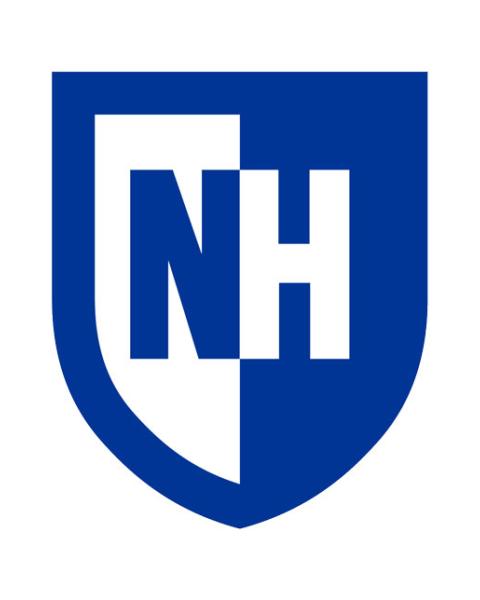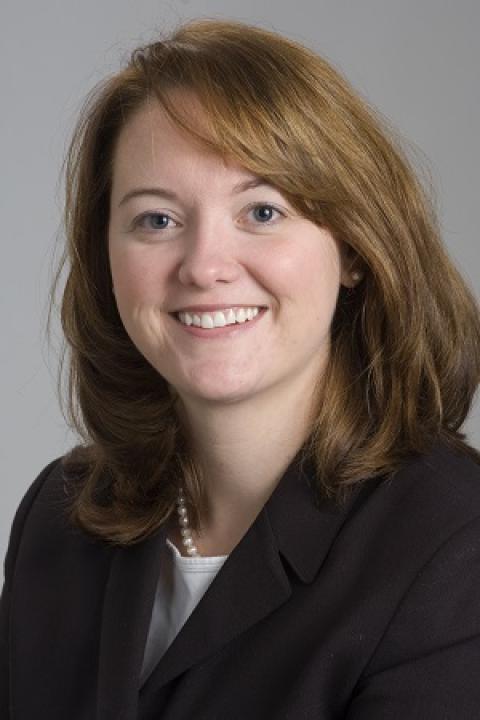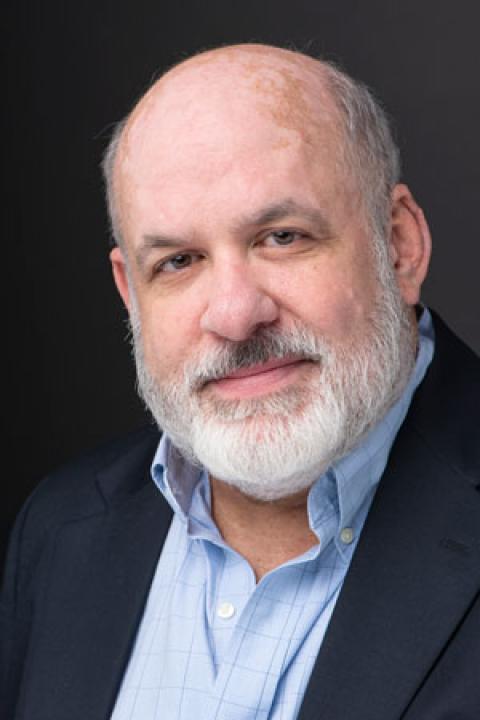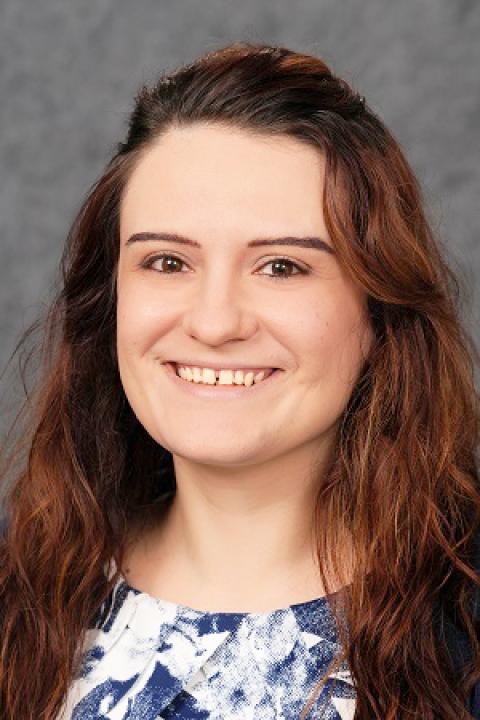WHY GET A MASTER’S DEGREE IN ECONOMICS?
A master’s degree in economics will equip you with advanced analytical and quantitative skills necessary for evaluating complex economic problems and developing effective solutions. You will enhance your critical thinking, research proficiency, and data analysis abilities, enabling you to contribute to policymaking, consulting, research, and various roles in the public and private sector. An M.S. in economics provides a strong foundation for a wide range of careers, including economic analysis, financial management, consulting, and academia.
WHY CHOOSE UNH’S M.S. IN ECONOMICS PROGRAM?
Nationally Ranked: Our M.S. in economics is ranked No. 32 in 2025 by TFE Times.
STEM Designated: Perfectly positioned for international students. With a STEM-designated focus, you will graduate from the M.S. in economics program and be able to apply for a 24-month OPT STEM Extension to your 12-month Optional Practical Training Program (OPT) period, allowing you to work in the United States for up to 36 months after graduation with no additional visa requirement.
One Year: Finish this program in just one year, saving time and money.
Rigorous and Relevant: Master the quantitative and cutting-edge research skills to excel in your career. Learn advanced economic theory, econometric and data analysis, and code in SAS and R.
Industry Track: Gain advanced quantitative economics and econometric skills in preparation for careers in applied economic professions.
Academic Track: Prepare for Ph.D. programs in economics.
Faculty Mentoring: Our faculty has a global reputation for outstanding research and teaching.
Capstone Experience: For the industry track, students complete an applied project, summer internship, or assist with faculty-driven research. For the academic track, students will complete the Ph.D. comprehensive exam in economic theory.
Accelerated Option is available for eligible UNH undergraduates to start the program during the last year of undergraduate studies.
Potential Careers
- Banking and financial services
- Data science
- Economic development
- Economic forecasting
- Economic policy
- Entrepreneurial ventures
- Government administration
- Urban and regional planning
1 Year
33rd
93%
Curriculum & Requirements
Paul College’s STEM designated Master of Science in Economics is a breed apart. The program offers an academic track and an industry track. Students also have the flexibility of pursuing a mixed track that combines courses from the academic and industry tracks.
The academic track provides a full year of doctoral-level economic theory, econometric analysis, and research seminar. It is designed for students whose goal is to become a research economist and possibly a Ph.D. economist.
The industry track’s curriculum is unlike any other Master’s program in the country. It is interdisciplinary, weaving together economic theory, data analytics, statistical methods, and data modeling. The program’s mix of doctoral-level and applied classes is also distinctive. Students learn economic theory and statistical methods at the doctoral level. They also use economic theory and data to understand a range of business decision problems. Innovative applied classes include Macroeconomic Consulting and Strategy Analysis: Games and Auctions.
Few other Master’s programs in the country provide a toolkit with comparable interdisciplinary range or rigor. Students learn economic theory and econometrics, code in R and STATA, and learn SQL, PowerBI, and Tableau all in one year. Graduates are uniquely trained to help businesses understand the market context, formulate decision problems, and manage the data analysis. People with this training are in high demand by organizations in all sectors.
The program can be completed in 12 months. It starts with an intensive Mathematical Economics course that is taught in a concentrated manner over the first two weeks of the Fall semester. It is followed by two semesters of coursework. Some of the industry-track courses are scheduled on the 8-week term calendar. These term classes entail 3-credit hours and meet 3.5 hours a week. A capstone experience completes the degree requirements. Industry track students’ capstone entails a corporate consulting project in the spring, while academic track students take a comprehensive exam in microeconomic or macroeconomic theory in early summer.
The program requires a minimum of 32 credit hours of coursework and a capstone experience. All students must complete four core classes.
| Code | Title | Credits |
|---|---|---|
| The Core | ||
| ECON 825 | Mathematical Economics 1 | 4 |
| ECON 926 | Econometrics I | 4 |
| ECON 927 | Econometrics II | 4 |
| ECON 976 | Microeconomics I | 4 |
| Industry Track | ||
| DS 801 | Business Intelligence 2 | 3 |
| DS 804 | Exploration and Communication of Data 2 | 3 |
| ECON 890 | Analytical Economics in Practice (Capstone) 2 | 3 |
| ECON 871 | Macroeconomic Consulting 2 | 3 |
| ECON 875 | Strategy Analysis: Games and Auctions 2 | 3 |
| Elective 3 | ||
| Academic Track | ||
| ECON 972 | Macroeconomics I | 4 |
| ECON 973 | Macroeconomics II | 4 |
| ECON 977 | Microeconomics II | 4 |
| ECON 988 | Graduate Economics Seminar (Fall and Spring) | 4 |
| Capstone - Comprehensive Exam | ||
| Mixed Track | ||
| ECON 871 | Macroeconomic Consulting 2 | 3 or 4 |
| or ECON 972 | Macroeconomics I | |
| At least 15 credits of classes (if ECON 972 is selected) or 14 credits of classes (if ECON 871 is selected) from either the industry or academic track. Students are recommended to take at least 5 credits of classes beyond the core during the fall semester and 8 credits of classes beyond the core during the spring semester. | ||
- 1
Course is offered in the first two weeks of the Fall semester and involves in-class and online learning. It provides the mathematical foundation needed for the fall theory and econometrics classes.
- 2
Course is scheduled on an 8-week term calendar and entails 32 hours of contact time.
- 3
Electives include ECON 928 Econometrics III, Time Series Econometrics, DS 809 Time Series Analysis, DS 807 Modeling Unstructured Data, MATH 838 Data Mining and Predictive Analytics, ACFI 810 Big Data in Finance, ADMN 863 Marketing Analytics, and other approved classes. The number of credit hours will vary depending on the choice of the elective.
Accelerated Master's Overview
Accelerated Master’s programs offer qualified University of New Hampshire undergraduate students the opportunity to begin graduate coursework in select graduate programs while completing a bachelor’s degree. Accelerated master's programs are designed to provide students with an efficient and cost-effective pathway to earn both a bachelor's and master's degree or graduate certificate, enhancing career opportunities and long-term earning potential.
Accelerated Master's Highlights
- Begin studying advanced topics while an undergraduate student with the opportunity to complete a master’s degree or graduate certificate early.
- Master’s degree program students: Earn up to 12* graduate (800-level) course credits while completing a bachelor’s degree. This coursework will count as dual-credit toward both the bachelor’s and master’s degrees.
- Graduate certificate program students: Earn up to 8* graduate (800-level) course credits while completing a bachelor’s degree. This coursework will count as dual-credit toward both the bachelor’s degree and the graduate certificate.
- Students complete the bachelor’s degree, and then officially matriculate into the master’s or graduate certificate program to complete the remaining required graduate-level coursework.
*Some exceptions apply.
Accelerated Master's Admission Requirements
- A minimum 3.2 cumulative GPA is required.*
- A minimum of 90 undergraduate credits must be completed prior to enrolling in graduate (800-level) courses.
- Streamlined Graduate School Application (two letters of recommendation; most standardized tests and application fee are waived).*
*Some exceptions apply.
Accelerated Master's Requirements
- Students must attend a mandatory orientation session.
- Students must submit a special registration form each semester for dual-credit courses and note any DegreeWorks exceptions.
- Students may defer graduate matriculation for up to one year after earning their bachelor’s degree in most programs.
- See the Accelerated Master’s Catalog Policy and Accelerated Master’s Website for additional information and a list of programs. Note that some programs have additional requirements (e.g. higher-grade expectations) compared to the general policy.
Economics (M.S.) Accelerated Option
This graduate degree program is approved to be taken on an accelerated basis in articulation with the following undergraduate program(s):
| Code | Title | Credits |
|---|---|---|
| Analytical Economics (B.S.) | ||
| Business Administration: Accounting (B.S.) | ||
| Business Administration: Finance (B.S.) | ||
| Business Administration: Information Systems and Business Analytics (B.S.) | ||
| Economics (B.A.) | ||
| Students select from the following approved 800-level courses that can be completed in the undergraduate senior year for dual credit: | ||
| ADMN 873 | Data Management and Visualization | 3 |
| ECON 871 | Macroeconomic Consulting | 3 |
| ECON 875 | Strategy Analysis: Games and Auctions | 3 |
| MATH 838 | Data Mining and Predictive Analytics | 3 |
| Other approved 800-level electives | ||
Additional Information
After matriculating into the master's program, students take a minimum of 20 additional credits to complete the master's program requirements.
Students will be required to earn a B- or better in graduate courses to earn credits toward their degree.
Program Learning Outcomes
Core Competencies
- Utilize economic theory to formulate and solve optimization problems for consumer and firm decision making (e.g., marginal analysis).
- Apply statistical and econometric methods using programming languages to analyze and draw valid conclusions from data.
- Demonstrate an ability to formulate well-designed research projects.
Industry Track
- Apply principles of data analytics to store, manage, and visualize large datasets.
- Identify and demonstrate how economic theory, econometrics, and data analytics can be applied to decision making at an enterprise level.
Academic Track
- Apply advanced graduate-level microeconomic and macroeconomic theory to understand markets and the economy.
- Demonstrate an ability to comprehend and critique current scholarly research in macroeconomics and microeconomics.
Deadlines
Applications must be completed by the following deadlines in order to be reviewed for admission:
- Fall: June 1
- Spring: December 1st (Current UNH undergraduates only; for Accelerated Masters)
- Summer: N/A
- Special: N/A
Application fee: $65
Campus: Durham
New England Regional: Not Needed
Accelerated Masters: Yes (for more details see the accelerated masters information page)
New Hampshire Residents
Students claiming in-state residency must also submit a Proof of Residence Form. This form is not required to complete your application, but you will need to submit it after you are offered admission, or you will not be able to register for classes.
Transcripts
If you attended UNH or Granite State College (GSC) after September 1, 1991, and have indicated so on your online application, we will retrieve your transcript internally; this includes UNH-Durham, UNH-Manchester, UNH Non-Degree work and GSC.
If you did not attend UNH, or attended prior to September 1, 1991, then you must upload a copy (PDF) of your transcript in the application form. International transcripts must be translated into English.
If admitted, you must then request an official transcript be sent directly to our office from the Registrar's Office of each college/university attended. We accept transcripts both electronically and in hard copy:
- Electronic Transcripts: Please have your institution send the transcript directly to grad.school@unh.edu. Please note that we can only accept copies sent directly from the institution.
- Paper Transcripts: Please send hard copies of transcripts to: UNH Graduate School, Thompson Hall- 105 Main Street, Durham, NH 03824. You may request transcripts be sent to us directly from the institution or you may send them yourself as long as they remain sealed in the original university envelope.
Transcripts from all previous post-secondary institutions must be submitted and applicants must disclose any previous academic or disciplinary sanctions that resulted in their temporary or permanent separation from a previous post-secondary institution. If it is found that previous academic or disciplinary separations were not disclosed, applicants may face denial and admitted students may face dismissal from their academic program.
Letters of recommendation: 3 required
Recommendation letters submitted by relatives or friends, as well as letters older than one year, will not be accepted.
Test Scores: GRE Required
GRE required. Request official test scores to be sent directly to the Graduate School by the testing service. Test scores more than five years old are not acceptable. Student copies and photo copies of scores are not considered official. Our CEEB code is 3918.
For general information about test scores, including waiver requests and current COVID related impacts, please visit our Test Scores webpage.
Personal Statement/Essay Questions
Prepare a brief but careful statement regarding:
- Reasons you wish to do graduate work in this field, including your immediate and long-range objectives.
- Your specific research or professional interest and experiences in this field.
Resume
A current resume is required with your submitted application.
Important Notes
All applicants are encouraged to contact programs directly to discuss program-specific application questions.
Enrollment Deposit
This program requires an enrollment deposit of $500. If admitted the deposit will be due by the deadline specified in your admit letter. The enrollment deposit secures a seat in the program for an applicant and can be used towards tuition once the applicant starts the program. For more information please see our enrollment deposits help page.
International Applicants
Prospective international students are required to submit TOEFL, IELTS, or equivalent examination scores. English Language Exams may be waived if English is your first language. If you wish to request a waiver, then please visit our Test Scores webpage for more information.
Explore Program Details
-
ProfessorChair, John A. Hogan Distinguished Professor of EconomicsEmail: Reagan.Baughman@unh.eduPhone: (603) 862-0800
-
ProfessorTodd H. Crockett Professor of EconomicsEmail: Michael.Goldberg@unh.eduPhone: (603) 862-3385
-
Senior LecturerManagement and EntrepreneurshipEmail: Scott.Lemos@unh.edu
-
Associate Professor EmeritusAssociate Professor of Economics EmeritusEmail: Neil.Niman@unh.edu
Paul College M.S. analytical economics graduates have launched successful careers with organizations including:
- Fannie Mae
- National Association of Manufacturers
- ITR Economic
- Amazon
- John Hancock
- U.S. Federal Reserve Board
- Global Economics Group
- University of Utah
- Brown University
- Public Consulting Group
Meet Our Faculty
Watch this video to learn more about the economics program faculty, including Michael Goldberg, Todd H. Crockett Professor of Economics and winner of the 2016 UNH Graduate Faculty Mentor Award.




























